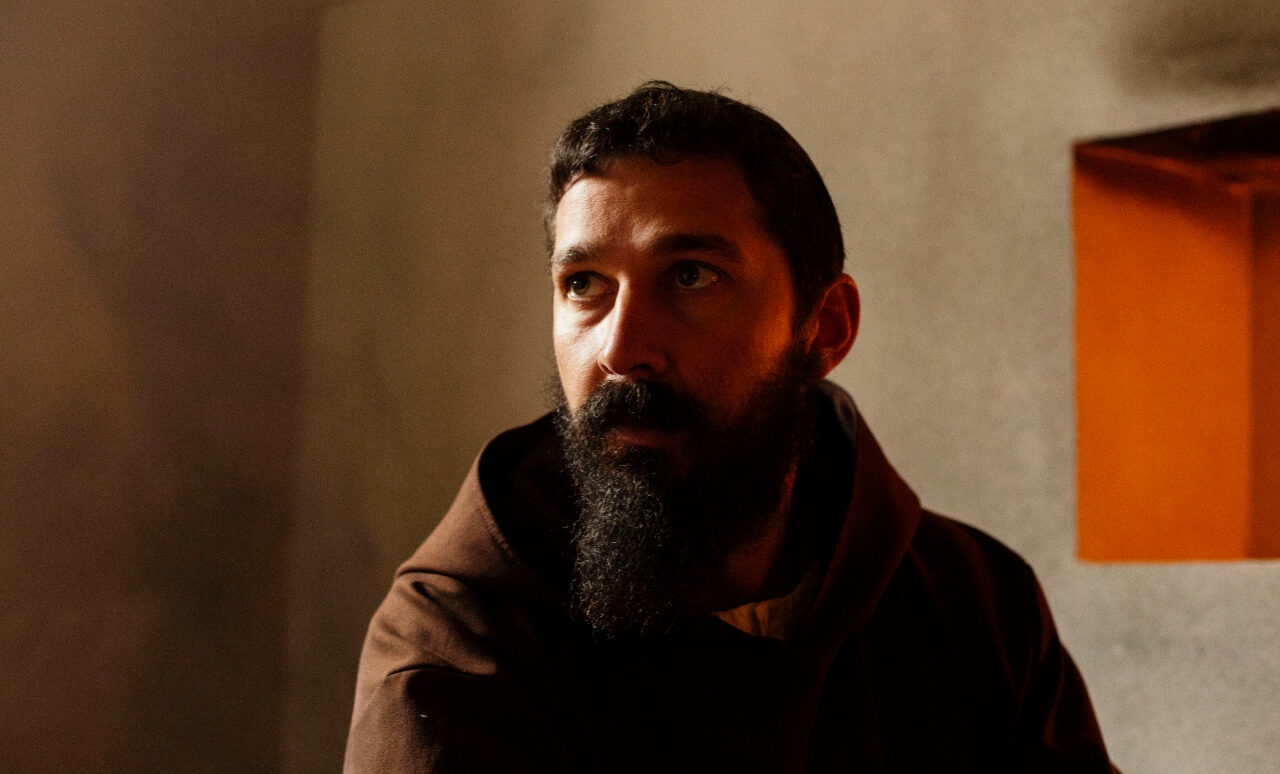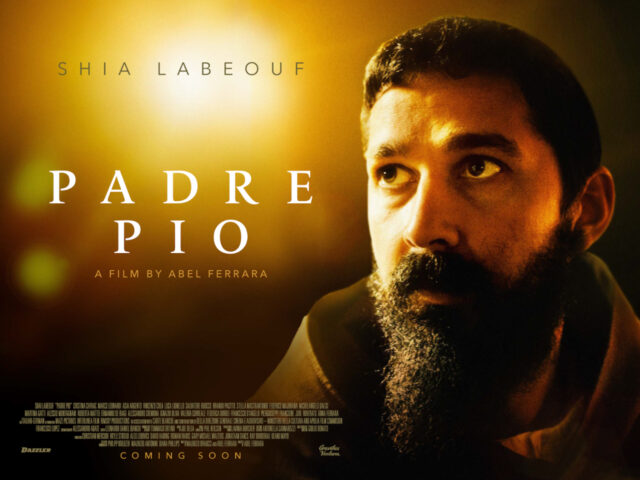Padre Pio

In Abel Ferrara’s latest homage to an Italian priest, Shia LaBeouf shines as a lost and constantly baffled Padre Pio. The saint was one of the most important figures in Catholic culture, although he doesn’t appear to be the main character of the entire biopic. What follows is a film that uses Pio as a device to tell a broader narrative about the rise of the socialist party in Italy.
In some ways, it seems Ferrara was hesitant about choosing what exactly this biopic should be: sometimes it’s about the saint’s insecurities, at others, it portrays an Italian society after World War I on the verge of a breakdown. Instead of only following Pio’s crisis in humanity (and himself), Ferrara aspires to incorporate complex political themes. The only drawback is that the events transpire quite chaotically, so it becomes tricky to make sense of what is happening during those sequences.
Furthermore, despite the presence of various Italian characters, from normal citizens to other priests, farmers and soldiers, Padre Pio also aspires to be a character study. Interestingly, it’s just like Bradley Cooper’s recent Maestro: there is an organic freshness that prevents it from becoming yet another informative biography with a few oversimplifications.
LaBeouf appears to be a bizarre choice, but he’s not a miscast; he strangely suits the role of a good-hearted vagrant. As we learn through his spirited performance, Pio had many regrets and uncertainties regarding his own faith. Supposedly, he possessed a gift of bilocation, which enabled him to appear in different places on Earth at the same time. In Ferrara’s biopic, Pio uses this skill to discuss his sins with his second presence. Those conversations deepen Pio’s weakness and ambiguity.
While Pio’s biographers described him as honest and compassionate, when it came to other people’s approach towards the maker, LaBeaouf’s Pio became adamant, even ruthless. As we will see, the existence of God and his majestic power was incontestable for him. “There’s no contrition in anything you say,” he scolds one of the heroines when he readily spots that her remorseful approach towards penance is rather contemptuous. All those nuances make Pio a complicated and ambiguous man.
Despite a few sublime and remarkable themes, Padre Pio loses its tempo without any stakes or Pio’s frequent on-screen appearances. Still, in the final sequence, LaBeouf’s powerful acting invites us to contemplate our own sins after the credits roll.
Jan Tracz
Padre Pio is released in select cinemas on 26th January 2024.
Watch the trailer for Padre Pio here:
























Facebook
Twitter
Instagram
YouTube
RSS